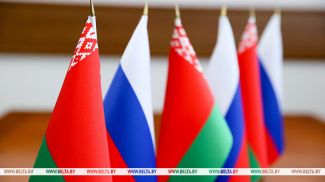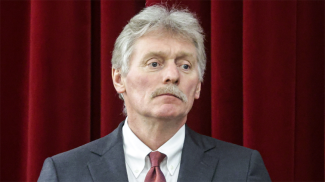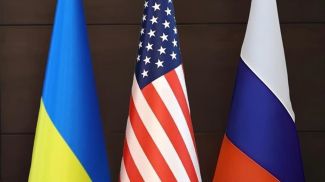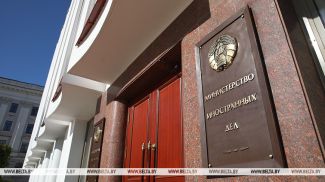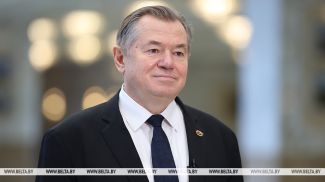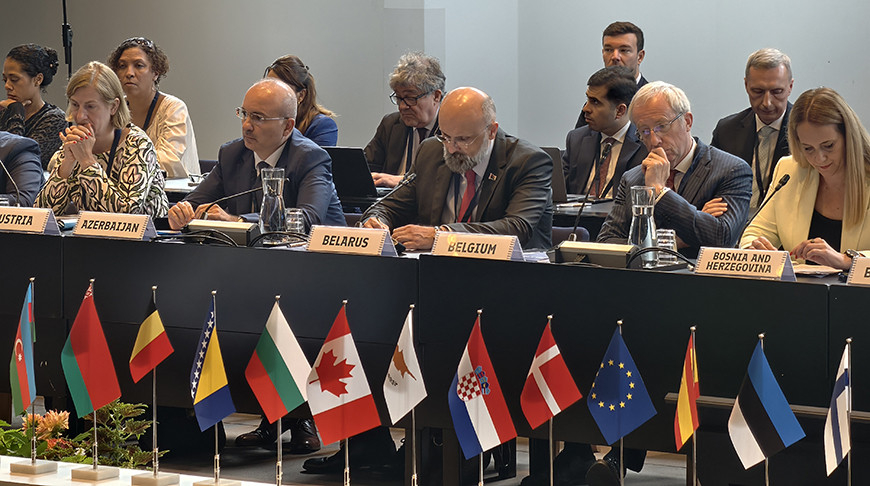
Photo courtesy of the Ministry of Foreign Affairs
MINSK, 1 August (BelTA) - The OSCE mechanism isn’t merely ineffective. It’s outright detrimental, Belarusian Deputy Minister of Foreign Affairs Igor Sekreta said after a joint final session with the participation of delegations of OSCE participating states and representatives of civil society in Helsinki on 1 August, BelTA learned.
“To advance discussions about the OSCE's future, we propose reframing our debate to focus on core priorities. The future of the OSCE (whose very value lies in consensus) no longer depends on solving the budget problem or determining the rotating chairmanship. The organization's viability will only be secured when participating states stop treating it as a stage for airing emotional grievances and start viewing it as a practical mechanism for enhancing continental cooperation, a driver of progress and as a platform for substantive dialogue,” Igor Sekreta noted.
“If we want things to improve, we need to change our thinking, seriously examine historical causality, try to understand how the collapse of the European security and cooperation system really happened. This did not happen in 2022,” the deputy minister said. “Just as 50 years ago, we again face the risk of major war in Europe. But the OSCE cannot create or preserve peace and mutual understanding against the will of its member states. The OSCE no longer has collective will. There’s much talk of values and principles, but no longer any shared vision of common goals or values.”
“Today, Europe is unfortunately driven by a self-fulfilling prophecy of war,” he stated. “The OSCE continues to be about lots of talking but little listening.”
“If the best we can do is this weekly tug-of-war of mutual accusations we witness in the Hofburg, we will achieve nothing," Igor Sekreta said. “But if we rise above ideological dogmas and prejudices, we can bring peace to Europe. How? By reactivating diplomacy. To break the deadlock in dialogue, we must clarify one crucial point: A cessation of hostilities and a new détente in Europe will be the result, not the precondition, of revitalized international engagement.”
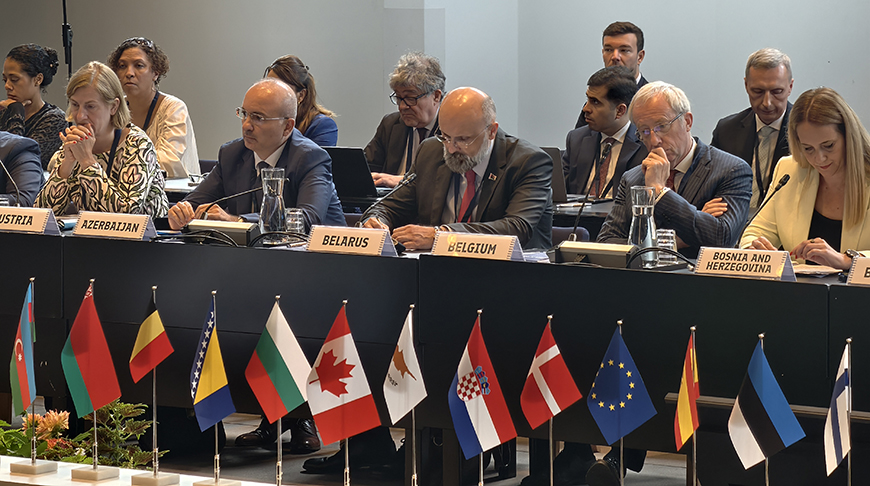
How can parties transition to this advanced stage of international cooperation? “We could achieve it by acknowledging the obvious and then agreeing on a future Eurasian security mechanism. Though admittedly, what’s ‘obvious’ differs sharply across the Bug River. To bridge this understanding gap (if government officials remain unready for rapprochement) we could task trusted analysts, academics, and journalists with initiating dialogue," the diplomat proposed.
He stressed that Belarus is prepared to engage in this dialogue anywhere, without any preconditions or demands.
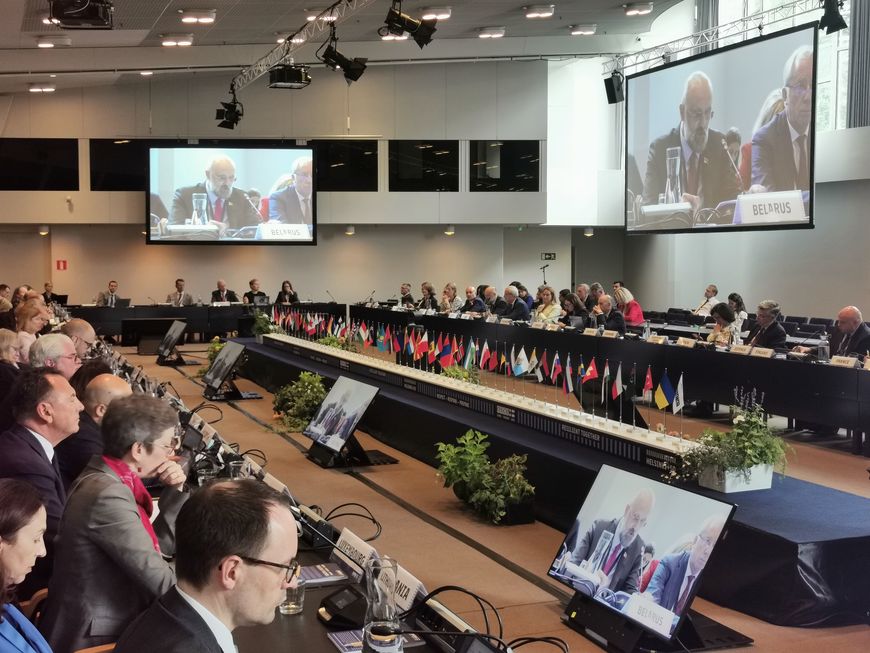
“To advance discussions about the OSCE's future, we propose reframing our debate to focus on core priorities. The future of the OSCE (whose very value lies in consensus) no longer depends on solving the budget problem or determining the rotating chairmanship. The organization's viability will only be secured when participating states stop treating it as a stage for airing emotional grievances and start viewing it as a practical mechanism for enhancing continental cooperation, a driver of progress and as a platform for substantive dialogue,” Igor Sekreta noted.
“If we want things to improve, we need to change our thinking, seriously examine historical causality, try to understand how the collapse of the European security and cooperation system really happened. This did not happen in 2022,” the deputy minister said. “Just as 50 years ago, we again face the risk of major war in Europe. But the OSCE cannot create or preserve peace and mutual understanding against the will of its member states. The OSCE no longer has collective will. There’s much talk of values and principles, but no longer any shared vision of common goals or values.”
“Today, Europe is unfortunately driven by a self-fulfilling prophecy of war,” he stated. “The OSCE continues to be about lots of talking but little listening.”
“If the best we can do is this weekly tug-of-war of mutual accusations we witness in the Hofburg, we will achieve nothing," Igor Sekreta said. “But if we rise above ideological dogmas and prejudices, we can bring peace to Europe. How? By reactivating diplomacy. To break the deadlock in dialogue, we must clarify one crucial point: A cessation of hostilities and a new détente in Europe will be the result, not the precondition, of revitalized international engagement.”

How can parties transition to this advanced stage of international cooperation? “We could achieve it by acknowledging the obvious and then agreeing on a future Eurasian security mechanism. Though admittedly, what’s ‘obvious’ differs sharply across the Bug River. To bridge this understanding gap (if government officials remain unready for rapprochement) we could task trusted analysts, academics, and journalists with initiating dialogue," the diplomat proposed.
He stressed that Belarus is prepared to engage in this dialogue anywhere, without any preconditions or demands.
"To advance our collective progress, we are pleased to dedicate our traditional Minsk International Conference on Eurasian Security (scheduled for 28-29 October this year) to this very purpose. Belarus, situated for decades at geopolitical crossroads, offers the optimal platform for dialogue and resolving regional conflicts. Come, let us talk. The outcomes will establish a solid foundation for Switzerland’s upcoming OSCE Chairmanship," stated the deputy minister.

The Belarusian side considers Switzerland’s OSCE Chairmanship as exceptionally well-prepared – both in mandate and credibility – for such critical discussions.
"The timing, however, must be expedited. Should one party persistently stall, whether pursuing battlefield dominance or economic strangulation, our continent faces quite a bleak future. Belarus believes the OSCE’s 50th anniversary should instead convey a far more optimistic signal to the world," concluded Igor Sekreta.




